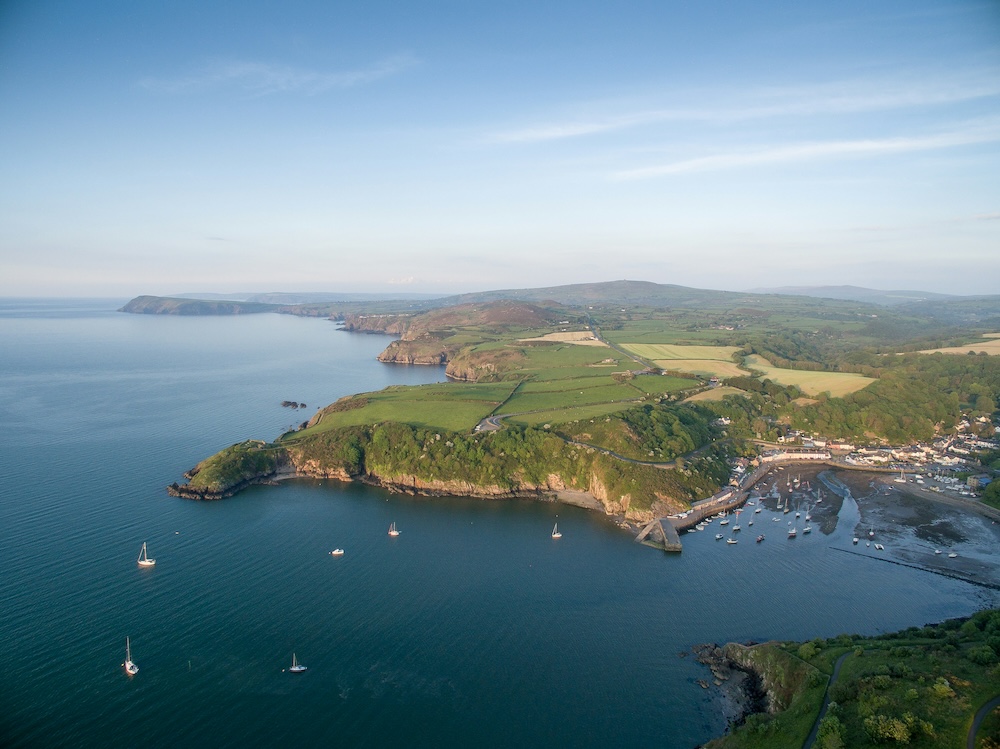Keith James and Rhys David look back at the life of Henry Kroch, the IWA’s founding chairman and a giant of the post-war industrial scene in Wales
Henry Kroch, the industrialist, who died recently at the age of 90, made a major contribution to the life of Wales, not least as founder chairman of the Institute of Welsh Affairs. German-born, he came to Britain in 1939, and helped to create AB Electronics. He transformed this small engineering business in Abercynon, 15 miles north of Cardiff, into one of Wales’ largest manufacturing companies, employing more than 5,000 staff in its heyday.
When the IWA was launched in 1987 by a group of leading Welsh business people, Henry agreed to be its first chairman. He provided inspirational leadership and ensured that firm foundations were laid during the think tank’s first five years. At the outset, weekly early morning meetings were held in Cardiff to get the fledgling institution on its feet. These occasions may have marked the first time power breakfasts came to Wales.
Henry was held in high regard not only in the business community but also in the public sector. He saw how important it was for Wales to have an independent body which could raise the level of debate and provide input to the major issues facing Wales.
Very early in its life the IWA recognised that revitalisation of the Valleys of south Wales was a major priority. In 1988 it produced its first report The South Wales Valleys: An Agenda for Action. Henry chaired the Steering Group and became a passionate advocate for the report’s recommendations. As he said in the report’s foreward: “Most of my working life has been spent in the Valleys and nowhere is now closer to my heart”.
The report was well received and he took great satisfaction from the fact that many of its suggestions were adopted by the then Secretary of State for Wales, Peter Walker, in his Valleys Initiative of the late 1980s.
Henry Kroch was born in October 1920 in the German town of Leipzig. After studying mechanical engineering in Switzerland, he came to Britain in 1939 to take up work in Manchester. In 1951 he joined AB Metal Products, then a small business with 100 employees. He became a director in 1959, managing director in 1964 and chairman in 1978.
Electronics was a booming industry and his company built up an enviable reputation as a reliable source of components, with a particular emphasis on the then thriving UK consumer electronics industries – radio, television, and record players. The company later expanded into other sectors to reduce the dependence on consumer electronics, supplying Acorn and Sinclair in the nascent computer industry, and later becoming a major contractor to the instrumentation and control gear, and defence industries. At its height, the company employed 5,500 people in Wales and across the rest of Europe but an earlier period of defence cuts in the 1980s and 1990s saw the stock market quoted company’s fortunes falter. It was acquired in 1993 by Surrey-based TT electronics but retains a substantial manufacturing presence in Wales.
Henry was also behind the company’s move into exporting which was seen to offer a counter to the fluctuations in demand in Britain as a result of economic downturns, hire purchase restrictions and tax changes. Expansion into Germany followed with the setting up of an AB subsidiary to assemble components sent from Wales and new sites were opened in other parts of south Wales including Cardiff.
He was also one of the first businessmen in Wales to champion entry into the European Economic Community (the forerunner of the European Union). At AB Metal Products he had begun to recognise the need for much larger markets to justify the heavy capital expenditure required to automate processes and remain competitive. “We do many things by hand which it would be better to do by machine but we could not pay for the machines if they ran for only half-an-hour, for example on Monday,” he told the Western Mail in an interview in 1967.
Henry Kroch also served on the boards of the Welsh National Opera, the Welsh Chamber Orchestra and the Welsh Council.
The IWA’s current chair, Geraint Talfan Davies, said, “Henry Kroch’s standing in the Welsh business community and his wise guidance was invaluable in quickly establishing the Institute as a vital contributor to the debate on Welsh issues. He maintained his interest in our work to the very end and we were proud to have him as an Honorary Life Fellow.”






This is a sad loss. I used to be an electronics analyst at a firm of stockbrokers in the 1980s and the visits to Abercynon. The contrast between the desolation of the post mining era and the AB Electronics facilities was striking.
I read with genuine interest the IWA’s online and ‘Agenda’ magazine articles on the life of Henry Kroch of AB Electronics. I remembered something from the mid 1970’s when I worked for ‘AB’s’ in Abercynon. A few of us knew that they produced components stamped ‘Made in England’, and along with other trades unionists, we asked the company to recognise they depended on a Welsh workforce and largely Welsh resources (steel etc.) to make their profits. Also, there was absolutely no evidence to show that customers wouldn’t buy components ‘Made in Wales’. They eventually responded by stamping components… ‘Made in the UK’ (not even ‘Made in Wales, UK’)!
Considering what has been written about Henry Kroch, my story seems terribly petty. His survival from the Nazi nightmare before World War 2, was like all such stories, inspiring. According to the people who wrote about him, he clearly respected his adopted country of Wales. He remained here for most of his life. He encouraged investors to support his dreams and he enabled thousands of people, including me, to earn a wage. Yet, when I read about Kroch ‘taking Wales to his heart’ (‘Agenda’ winter 2011), underlined by his chairmanship of IWA and membership of various national institutions, I wondered if he realised at last that his personal and financial success had been built on our country’s human and natural resources, and that he – and other industrialists like him – had been ‘Made in Wales’?